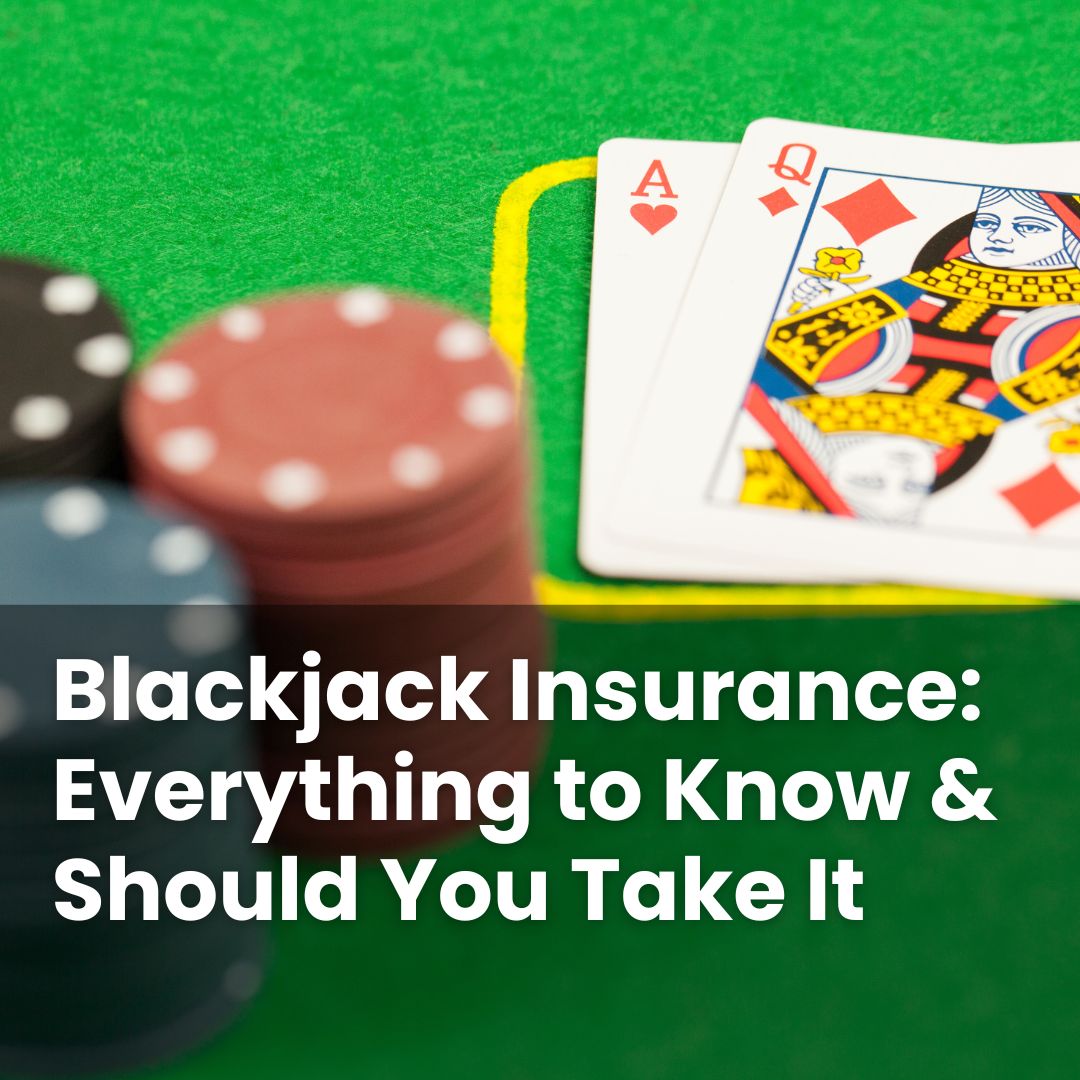Blackjack insurance is something that often comes up when the dealer reveals a certain card. It might seem helpful at first, but it might be puzzling in actual play.
Understanding what this option involves, when it becomes available, and how it affects the round can make the decision a little easier. Having clarity at the table can really make a difference.
This blog post walks through how this side bet works, whether it might be worthwhile, how it contrasts with another offer sometimes presented, and the common misunderstandings surrounding it, so you can decide if it suits your style. Read on to learn more.
What Is Insurance In Blackjack?
Insurance is a special bet that appears only in a particular situation involving the dealer’s face-up card. If you choose to place this bet, it usually involves putting down a portion of your original wager.
If the dealer’s hidden card matches certain criteria, this bet pays out differently from the main hand. If not, the side bet is lost. Meanwhile, the main hand continues and is settled normally, no matter what happens with this additional wager.
It’s important to remember that this option is always entirely optional, and many players simply carry on with their main hand without engaging with it.
How Does Blackjack Insurance Work?
When the dealer reveals that specific card, the action at the table briefly pauses to offer the chance to place this side bet.
Consider a hypothetical scenario: if your original wager is £10 and you decide to put £5 on this option, what happens next depends on the dealer’s hidden card.
If the dealer’s hidden card fits the criteria, the main wager may be lost, but the side bet pays out at a particular rate, which can offset the loss to some degree.
If the dealer’s card doesn’t match, the side bet is lost, and the main hand proceeds as usual.
Over many rounds, the payout ratio suggests that the dealer would need to hold a particular card about one time in three for this side bet to break even. In practice, that frequency is usually lower, which affects the overall outcome of the bet.
Discover The Best Online Casinos
Browse our list of top-recommended casino sites, read reviews from real players & be the first to get access to the latest casino bonuses
When Is Insurance Offered At The Table?
This option is only presented when the dealer’s visible card is that specific one mentioned earlier. Before any further play happens on the hand, players are asked whether they want to take it.
Once a decision is made, the dealer checks if they have the matching card beneath. The side bet is then resolved before the hand continues.
In some game formats, the dealer immediately reveals the hidden card, while in others, the reveal happens later, but the option to place the bet still appears as soon as that card is shown.
Players can say no every time without it affecting their main play.
Should You Take Insurance In Blackjack?
Most players with experience tend to decline this offer because the payout isn’t generally in their favour. The payout requires a certain chance of the dealer holding a matching card, and that chance isn’t usually high enough.
There are exceptions, though. Some players with advanced techniques might find moments when it can work out better, based on the composition of the cards left in the deck. However, for most people, especially where those techniques aren’t practical, this tends not to be the case.
In general, unless you have a reliable way to assess the remaining cards, this side bet is unlikely to improve your outcomes.
Why Do Most Players Say No To Insurance?
The main reason is simple: the maths does not add up well for the player. The odds of the dealer having blackjack are usually lower than the 2:1 return suggests, so the expected value is negative.
There is also a strategic cost. Insurance turns attention away from the main hand, yet winning or losing that hand has the biggest impact on results over time. As touched on later in the myths section, the strength of your own hand does not change the insurance odds, so having 20, for example, is not a reason to insure.
Skipping insurance keeps the focus on the hand that matters most and helps maintain a steady approach to stakes.
Is Insurance Ever Worth Taking?
For most typical situations, it’s not a good choice. Without clear information about the remaining cards, this side bet usually reduces overall outcomes.
Occasionally, when there’s a solid reason to believe a matching card is more likely, it might be worth considering, but that’s usually within the realm of advanced counting techniques. Outside those rare instances, most players do better passing on it and focusing on their main play.
Blackjack Insurance Vs Even Money: What’s The Difference?
These two offers are often mentioned together, but serve different purposes.
The first is the side bet available when the dealer shows that specific card. It pays out at a particular rate if the dealer has the matching card and otherwise is lost, while your main hand continues as normal.
The other is offered only when you already have a natural blackjack and the dealer shows that card. It guarantees a payout immediately, though at a different rate than usual, to avoid the possibility of a tied hand.
In fact, mathematically, the second is equivalent to taking the side bet on your own blackjack.
For example, with a £10 wager:
- The usual payout might be £15 unless the dealer also has blackjack, resulting in a tie.
- The alternative pays £10 immediately, regardless of what the dealer has.
Because the odds don’t favour the player, most strategies advise declining the immediate payout for similar reasons as declining the side bet.
Before deciding, consider whether you prefer certainty now at the expense of some potential return later.
Common Myths About Blackjack Insurance
There are a few common misunderstandings that make this side bet sound better than it generally is.
One is the idea that it somehow “protects” any strong hand. In reality, it’s a bet only on the dealer’s hidden card, so having a strong total yourself doesn’t improve the side bet’s value.
Another is the belief that it guarantees avoiding a loss on the round. The two bets are independent—you might win the side bet but lose your main hand, or vice versa.
Some assume the payout ratio must mean it’s a good deal. As outlined earlier, the chance of the dealer having the matching card is usually below the point where the payout is favourable.
Understanding these points helps keep your focus where it counts—on playing your main hand well. Having a clear plan for wagers and staying steady with optional side bets keeps the game centred on what matters most.
If you choose to play blackjack, always do so with responsible gambling practices in mind and never wager more than you are willing to lose.





